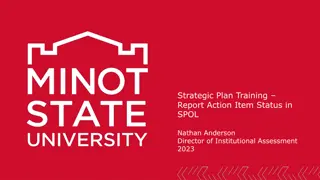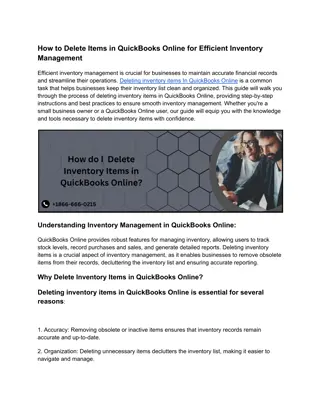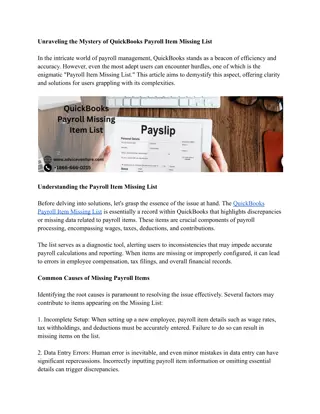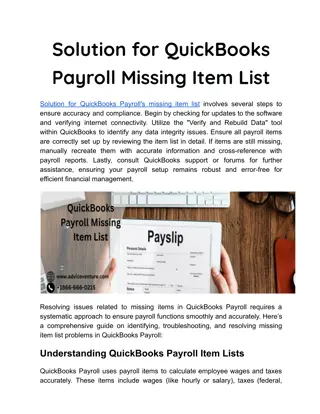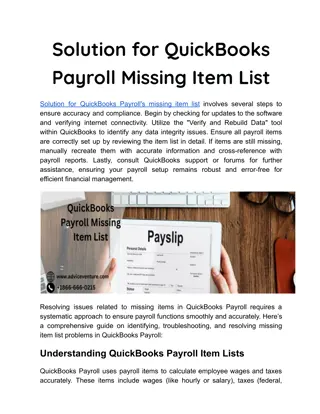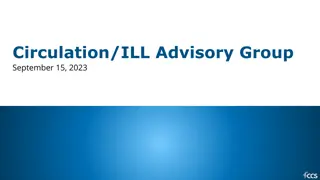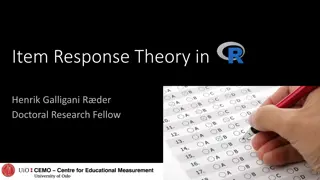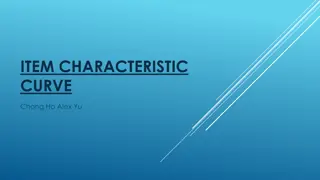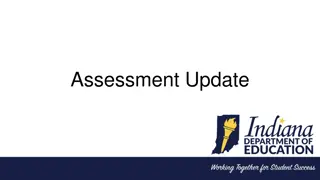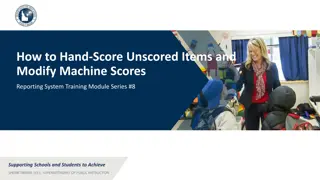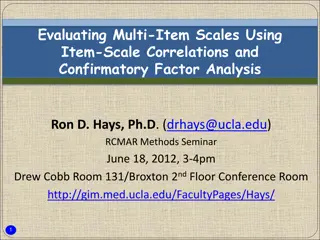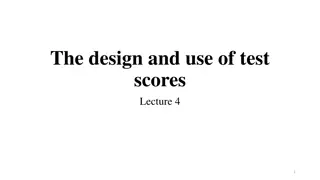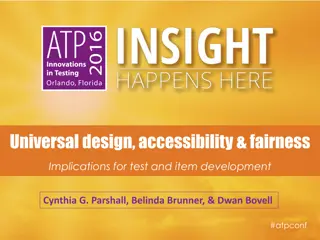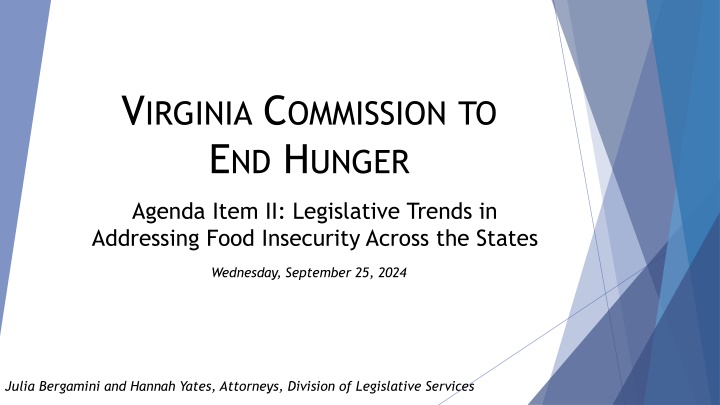
Legislative Trends in Addressing Food Insecurity Across States
Explore the latest legislative trends in addressing food insecurity across different states, including initiatives related to SNAP registration, eligibility, and benefit incentives, K-12 and higher education programs, Hunger-Free Campus Grant Programs, and more.
Download Presentation

Please find below an Image/Link to download the presentation.
The content on the website is provided AS IS for your information and personal use only. It may not be sold, licensed, or shared on other websites without obtaining consent from the author. If you encounter any issues during the download, it is possible that the publisher has removed the file from their server.
You are allowed to download the files provided on this website for personal or commercial use, subject to the condition that they are used lawfully. All files are the property of their respective owners.
The content on the website is provided AS IS for your information and personal use only. It may not be sold, licensed, or shared on other websites without obtaining consent from the author.
E N D
Presentation Transcript
VIRGINIA COMMISSION TO END HUNGER Agenda Item II: Legislative Trends in Addressing Food Insecurity Across the States Wednesday, September 25, 2024 Julia Bergamini and Hannah Yates, Attorneys, Division of Legislative Services
Presentation Overview: Legislative trends across states relating to: SNAP eligibility, registration, and benefits incentive programs K-12 Education Free School Meals; Farm-to-School Programs and local produce partnerships, purchasing incentives, and accessibility; Other; Higher Education SNAP eligibility; Assisting students in navigating and accessing support services and resources; Hunger-Free Campus Grant Programs; and Other 2
Supplemental Nutrition Assistance Program (SNAP) Registration. Several states have introduced and passed legislation aimed at simplifying the SNAP registration process, including: Texas SB224 (effective 09/01/2021) Simplifies the SNAP registration process specifically for seniors and individuals with disabilities by extending the recertification deadline, shortening the application form, and allowing registration by phone; New Jersey Passed the following three bills, all during the 2020-2021 session, simplifying the SNAP registration process: A4240: allowed registration by phone; A2281: For seniors, provides shorter registration form and allows for cross-enrollment between Medicaid and SNAP; and A 5880: Authorized the creation of a mobile app for state residents to register for SNAP and track their benefits. 3
SNAP, cont.Eligibility. Several states have proposed legislation aimed at expanding eligibility for SNAP, eliminating barriers to establishing eligibility, and reducing benefit cliffs by ensuring increase in income does not result in automatic loss of benefits. Examples include: Maine H538 (2021) Eliminated asset test; permits individuals to participate regardless of value of countable resources; Nebraska LB108 (2021) Adjusted gross income eligibility limit and asset test to reduce benefit cliffs by allowing individuals to increase income without losing benefits; Missouri SB45 (2023) Established transitional assistance programs to reduce benefit cliffs by establishing a gradual decrease in monthly benefits proportional to increase in income. 4
SNAP, cont.Other. Local Agriculture Incentive Programs legislation aimed at creating financial incentives to use SNAP benefits for locally grown produce. Example: Arizona SB1845 (2021) Establishes a plan to price match SNAP purchases of eligible Arizona-grown produce. 5
K-12 EducationFree School Meals. As of April 2024, eight states have passed legislation to provide universal free school meals to all students regardless of income, including: California Universal Meals Program (enacted 2022) requires each public school and charter school serving students in grades K-12 to provide two meals free of charge (breakfast and lunch) during each school day to each student requesting a meal, regardless of the student s eligibility for free or reduced price meals; Massachusetts H4040 (passed 2023) Established permanent universal free school meals, requiring all schools providing lunch pursuant to the National School Lunch Act or breakfast pursuant to the National Child Nutrition Act to make breakfast and lunch available at no charge to each student regardless of household income; New Mexico SB4 (effective 2023) Requires each public school and charter school providing lunch or breakfast pursuant to the national programs to provide one breakfast and once lunch at no cost to each student during each school day without consideration of the student s eligibility for a federally funded free or reduced-price meal, with a maximum of one free meal for each meal service period. 6
K-12 Education, cont.Farm-to-School Programs & Local Food Partnerships and Incentives Several states have introduced and passed legislation expanding farm-to-school programs or incentivizing school divisions/agencies to purchase locally grown produce for the provision of school meals, including: New Mexico SB4 (effective 2023) created, in provision in the legislation establishing universal free school meals, an incentive for school food authorities to purchase locally produced and unprocessed/minimally processed products (the greater of $1,000 or $0.10xnumber of qualifying lunches); Maine, The Local Foods Fund Incentives the use of locally produced foods in Maine schools through matching $1 for every $3 that a school administrative unit pays for food grown or produced in Maine; Colorado, Healthy Meals for All Public School Students Act (SB 22-087) Includes language to provide local food purchasing grants to eligible participating school food authorities . 7
K-12 Education, cont.Other. Other legislation introduced in states relating to addressing food insecurity includes: Illinois HB3643 (2023) (vetoed by the Governor) Would have required each school board to provide religious dietary food options as part of the school lunch program Arizona HB2352 (2023) (died in Committee) Would have established the No Lunch Debt Grant Program for the purpose of awarding school districts or charter schools grants to be credited to the meal account of each student who incurred a lunch meal debt 8
Higher EducationSNAP Eligibility. Some states proposed legislation aimed at reducing barriers to establishing SNAP eligibility for students enrolled in institutions of higher education at least half- time through expanding in state legislation the types of educational/work study programs that qualify for the work study or work training program exemption. Includes: Illinois SB-0351 (2017) Establishes that any educational program offered at an Illinois community college shall be considered a work study or work training program for the purposes of the SNAP eligibility exemption. New York 20-ADM-13 (administrative directive) Provides that all students attending an institution of higher education at least half-time and who are enrolled in a career or technical education program meet the exemption to be eligible for SNAP 9
Higher EducationNavigating and Accessing benefits and services. Several states have recently introduced legislation aimed at requiring institutions of higher education to establish programs or designate staff as campus liaisons for the purpose of assisting students at risk of food security in navigating and accessing available benefits, services, and resources, including: Texas HB1361 (2023) Requires each institution of higher education to designate at least one staff member liaison officer to support students who are parents of a child younger than 18 years of age by ensuring they are aware of support services and resources available and to assist them in navigating such services/resources. Washington HB1559 (2023) [Student Basic Needs at Public Postsecondary Institutions Act] Requires each institution of higher education to have at least one benefits navigator to assist students in accessing public health benefits, existing emergency assistance programs, and other community resources. 10
Higher EducationEstablishing Hunger- Free Campus Grant Programs. Several states have passed legislation establishing or expanding Hunger-Free Campus Grant Programs [similar HB 827, as introduced, and SB 318 (continued in Senate Finance) from the 2024 session of this General Assembly], including: Minnesota HF7 (2021) Expanded its existing hunger-free campus program from serving only community and technical colleges to include all public universities; Maryland HB891 (2021) Established the Hunger-Free Campus Grant Program to address student hunger and basic food needs on campus; Illinois HB2528 (2023) Requires the Board of Higher Education to establish the Hunger-Free Campus Grant Program for the purposes of providing grants to public institutions of higher educations that meet the requirements for being designated a hunger-free campus. 11
Other Legislation. Delaware SB 254 (2024) Established the Delaware Grocery Initiative for the purpose expanding access to healthy foods in food deserts and areas at risk of becoming food deserts by providing grants and other forms of financial assistance to any eligible source that provides or enables access, availability, or affordability of healthy food products including foot retailers, food banks, food pantries, specialty grocers, supermarkets, corner stores, restaurants, state benefits offices, food box voucher programs, etc. New York SB1385 (2023) (died in committee) Would have allocated money remaining from the CARES Act and any future federal stimulus program to a state program or initiative that provides funding to food banks, emergency food provides, or other participating entities. 12


